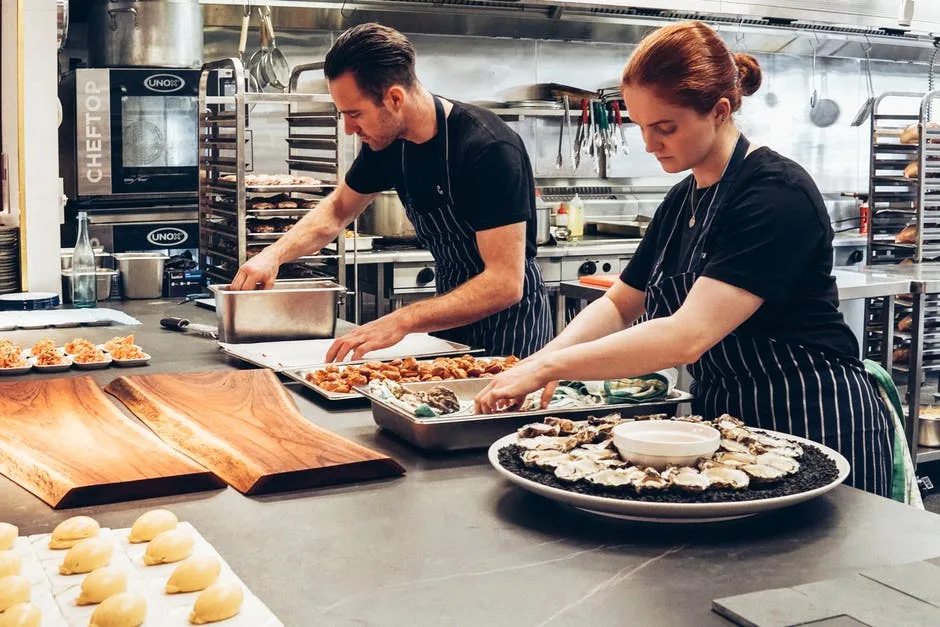The global catering industry is expected to grow in worth from about $459 billion to $609 billion by 2027. If you’re looking for access to a thriving industry with room for growth, starting a catering business is the way to go!
Starting a catering business may be more complicated than it sounds. After all, whether you’re operating your business from home or renting out a physical location, it’s still a small business.
Fortunately, with our guide to starting a catering business, you can focus on one step at a time. The best way to pursue a big task is to break it down into bite-sized pieces!
Read on for the five most important steps to starting your very own catering business.
1. Start With Market Research
First, you need to figure out what’s happening in your city. What catering businesses already exist? What kinds of food do they serve, what kinds of events do they specialize in, and who are their clients?
Starting a business requires that you find the void in your community and do your best to fill it. Plus, establishing a need for your business makes it much easier to secure investors and small business loans down the line.
This is a good time to start thinking about how far you’re willing to travel, as well. Do you have the resources, time, and energy to broaden your market to surrounding communities? If not, how can you guarantee steady business within your own community?
Starting with market research is a good way to dip your toes in the water. This is the time to familiarize yourself with the competition, the potential partners (like event planners), and the overall market for catering.
2. Sift Through the Paperwork
Before you can get your catering business off the ground, you’ll need to get through some paperwork. What licenses are needed to start a catering business in your state? The required licenses and permits tend to vary regionally, but there are a few that are almost always required:
Get through the paperwork before you dive into your business plan and budgeting. Your local catering laws and limitations can greatly impact the structure (and, therefore, the funding) of your business. For example, you may not be allowed to run your catering business out of your home, which would create the additional expense of a brick-and-mortar location.
3. Establish Your Niche and Potential Customer Base
Now, it’s time for the fun part! It’s time to sit down and think about what your own strengths are and how you can bring them into the catering world.
Make a list of the kinds of foods you’re familiar with and the types of dishes you or your chef(s) specialize in. Then, cross-reference your list with the market research you performed earlier. How do your strengths compare to what’s already being done in your community?
The goal is to figure out what you can offer that stands out from the competition. If there are already six different Italian catering services in your community, offering Italian fare probably isn’t the best option. If there are no vegan or vegetarian catering services in your community, this may be a good go-to!
That being said, you also need to make sure that your niche lines up with a potential customer base. For example, if there are no vegan or vegetarian catering services because there aren’t many vegans or vegetarians in your community, then that might not be the best direction to go in, after all. In other words, make sure that the void you discover through market research is one that actually needs filling in your community!
4. Prepare a Business Plan
Now, it’s time to put together a comprehensive business plan. A catering business plan should include:
Creating a comprehensive business plan is a crucial step to complete before opening your doors and taking clients. It can help you understand how much you need to make and over what time span in order to survive. It can also help you create a compelling case for investors and lenders.
5. Invest In Equipment, Ingredients, and More
Finally, it’s time to start preparing for your grand opening! Once you have secured funding, you’ll want to find the best catering equipment supplier for your needs. You’ll also want to find a steady, reliable, and affordable source of ingredients, preferably based in your own community.
To get the swing of things, you may want to do a few practice rounds with friends and family members posing as your clients. Not only can this give you a better sense of what to expect from future events but it’s also a nice way to start marketing yourself to loved ones and members of your community!
2021 Is a Great Year to Start a Catering Business
The catering industry is projected to grow by several billion dollars in less than a decade. If you want to join an industry that is active, exciting, and destined for growth, start a catering business in 2021!
A great way to thrive as a caterer is to stay on top of trends. What kinds of events are popular and what kinds of food are people itching to try? Take a look around at our content and stay on top of the latest trends so you can keep your business fresh and exciting!







